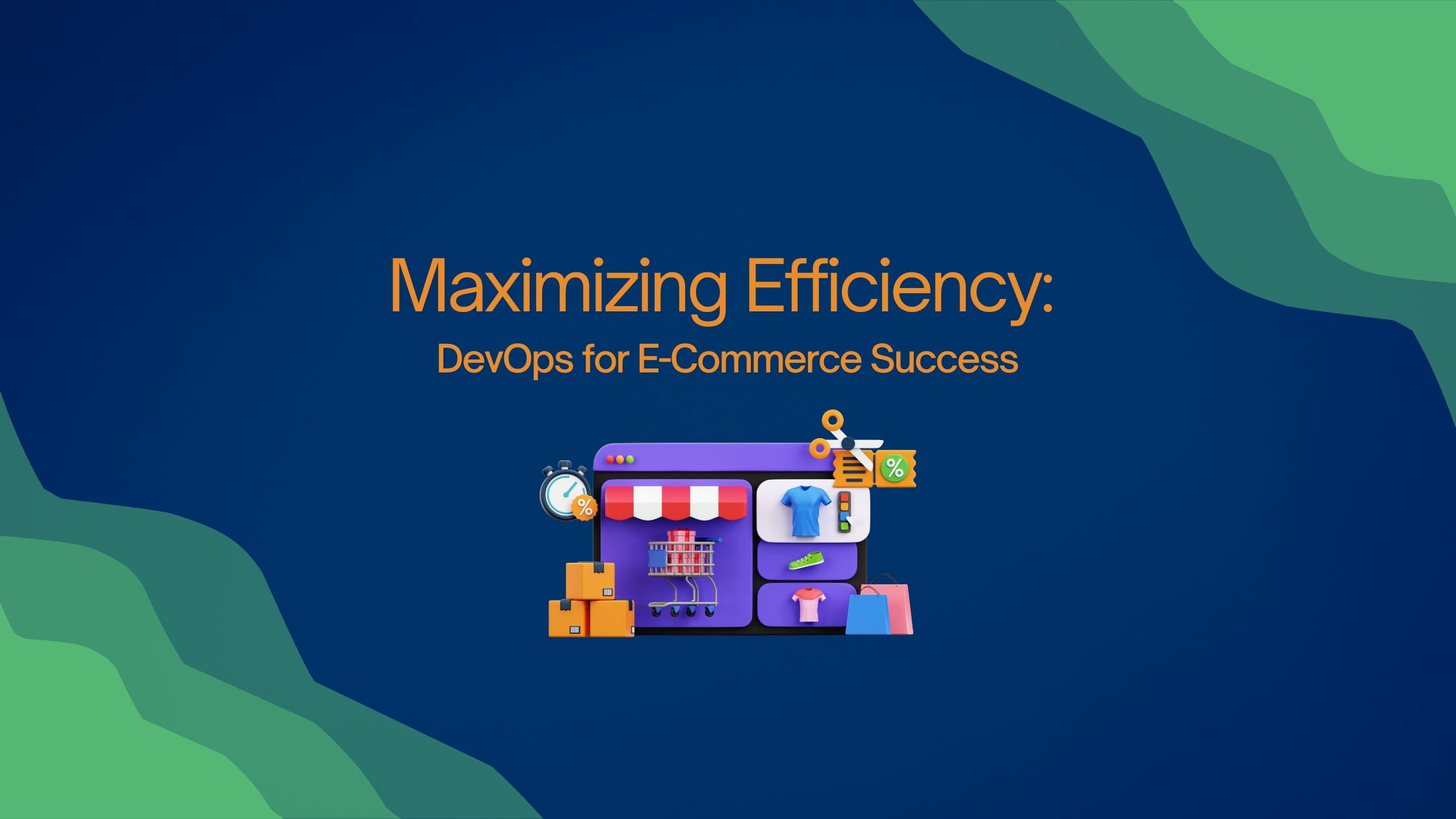According to the latest statistics, there are between 12 and 24 million online stores, where the average shopper makes around 19 purchases per year. Staying ahead of the competition requires more than just a compelling product or service. That’s why e-commerce businesses demand a reliable, efficient and secure IT infrastructure that can adapt to rapid changes and deliver seamless user experiences so that shops can stay ahead of their competitors. This is where DevOps becomes a necessity for e-commerce businesses nowadays. In this article, we’ll explore the role of DevOps in the e-commerce industry and how it can increase the performance of online shop platforms.
DevOps best practices for achieving success and higher revenues
CI/CD
Starting with continuous integration (code merging, allowing frequent updates to a central repository, where automated tools ensure code correctness through builds and tests before integration.) and continuous delivery (a practice of continuously maintaining code in a deployable ready state.). DevOps promotes an agile release methodology that enables e-commerce businesses to respond swiftly to market demands.
On the other hand, continuous deployment (CD) can help streamline the deployment process, reducing the risk of errors and minimizing downtime. This ensures that new features and updates can be delivered as often as the business needs, fast and secure, and with fewer bugs, which improves the overall customer experience and satisfaction.
Autoscaling, performance optimization and monitoring
Another role of DevOps in the e-commerce industry is helping platforms be scalable with optimized performance. Online shops often experience fluctuating levels of traffic, especially during peak seasons like winter or promotional events such as Holiday Sales and Season Discounts DevOps practices ensure that systems can handle increased workloads without compromising performance. Autoscaling and load-balancing techniques help distribute traffic efficiently, preventing slowdowns or outages during high-demand periods. Moreover, even when slowdowns happen or undesirable events disrupt the system operation, alerts could be triggered. This is called continuous proactive monitoring- the utilization of tools and protocols to identify and address issues at an early stage, preventing them from escalating into more significant problems and affecting the clients. Proactive monitoring enables businesses to make informed decisions, optimize processes, and enhance the overall customer experience, making it an integral component of a successful e-commerce strategy.
Automated security testing and back-ups
Security is another top priority, especially in the e-commerce industry, as they deal with sensitive customer information and financial transactions and have to meet all regulatory requirements. Automated security testing, code analysis, and continuous monitoring help identify and address vulnerabilities proactively, reducing the risk of security breaches. But don’t worry, even if a website is hacked and taken down, DevOps backup practices ensure that the MTTR (mean time to recover) will be minimised and the data won’t be lost.
Business Example
To get more detail, let’s consider a fictional e-commerce company called “TechBuddies,” and explore how they implemented DevOps practices to enhance their online platform.
Background of the company
TechBuddies is an innovative e-commerce platform specializing in the latest technology products. Facing fierce competition and a rapidly changing market, TechBuddies recognized the need to transform its IT processes to stay ahead of the competition.
Challenges
Before integrating DevOps practices, TechBuddies struggled with automated horizontal scaling, since the code had to be released manually on more than one machine, making it challenging to respond quickly to market trends and customer demands. During peak seasons and new product launches, their website often experienced performance issues and slowdowns due to a need for more scalable infrastructure. Moreover, TechBuddies needed to strengthen its security measures to protect against potential threats and breaches and meet the GDPR and other regulatory requirements for payment card processing.
Actions
TechBuddies adopted an agile development approach, breaking down large projects into smaller, manageable tasks. They implemented continuous integration using tools like Jenkins, automating the build and testing processes. This allowed developers to integrate code seamlessly, identify issues early in the development cycle, and accelerate the overall release process. They also leveraged continuous deployment practices by implementing automated deployment pipelines. Tools like Docker and Kubernetes were employed to containerize applications, ensuring consistency across different environments. This streamlined release management decreased deployment times and minimized the risk of errors during updates.
To address scalability concerns, TechBuddies implemented auto-scaling mechanisms in their cloud infrastructure. They utilized Amazon Web Services (AWS) for elastic computing, allowing the platform to automatically adjust resources based on demand. Load balancing was implemented to distribute traffic efficiently, preventing performance bottlenecks during high-traffic periods.
And last but not least, TechBuddies integrated backup and security practices into their DevOps pipeline. They implemented automated security testing using tools like Selenium and conducted regular backups. Additionally, continuous monitoring tools were employed to detect and respond to security breaches in real-time.
Outcomes
Accelerated Release Cycles and Increased Revenue Streams: With DevOps practices in place, TechBuddies significantly accelerated their release cycles. New features and updates were delivered to customers faster, allowing the platform to capitalize on market opportunities more effectively and stay competitive in a rapidly evolving market.
Improved Scalability and Cost Savings: The implementation of auto-scaling and load balancing ensured that TechBuddies could handle spikes in traffic seamlessly. This resulted in significant cost savings in both development and operational process, and consistently smooth user experience, even during traffic surges.
Transparency and Measurability: The DevOps department’s provision of reports to the business has established a culture of transparency and measurability. Reports, including but not limited to Cost reviews, Security scans, Backup reports, Monitoring, and Performance reports, have played a crucial role in providing insights that contribute to continuous improvement across the organization.
Enhanced Security: The proactive approach to security resulted in a more resilient and secure e-commerce platform. TechBuddies successfully reduced the risk of security breaches and instilled confidence in their customers regarding the safety of their data.
In a highly competitive industry such as e-commerce, the implementation of DevOps practices is not just a choice; it’s a necessity. By embracing agility, automation, collaboration, and a relentless focus on customer experience, e-commerce businesses can navigate the challenges of the digital landscape with confidence. DevOps is the key to achieving a streamlined and efficient IT infrastructure, ensuring that your online store not only survives but thrives in the dynamic world of e-commerce.
Ready to elevate your e-commerce game? Schedule a meeting with us now and let’s explore how our tailored solutions can transform your platform into a thriving online success story.



